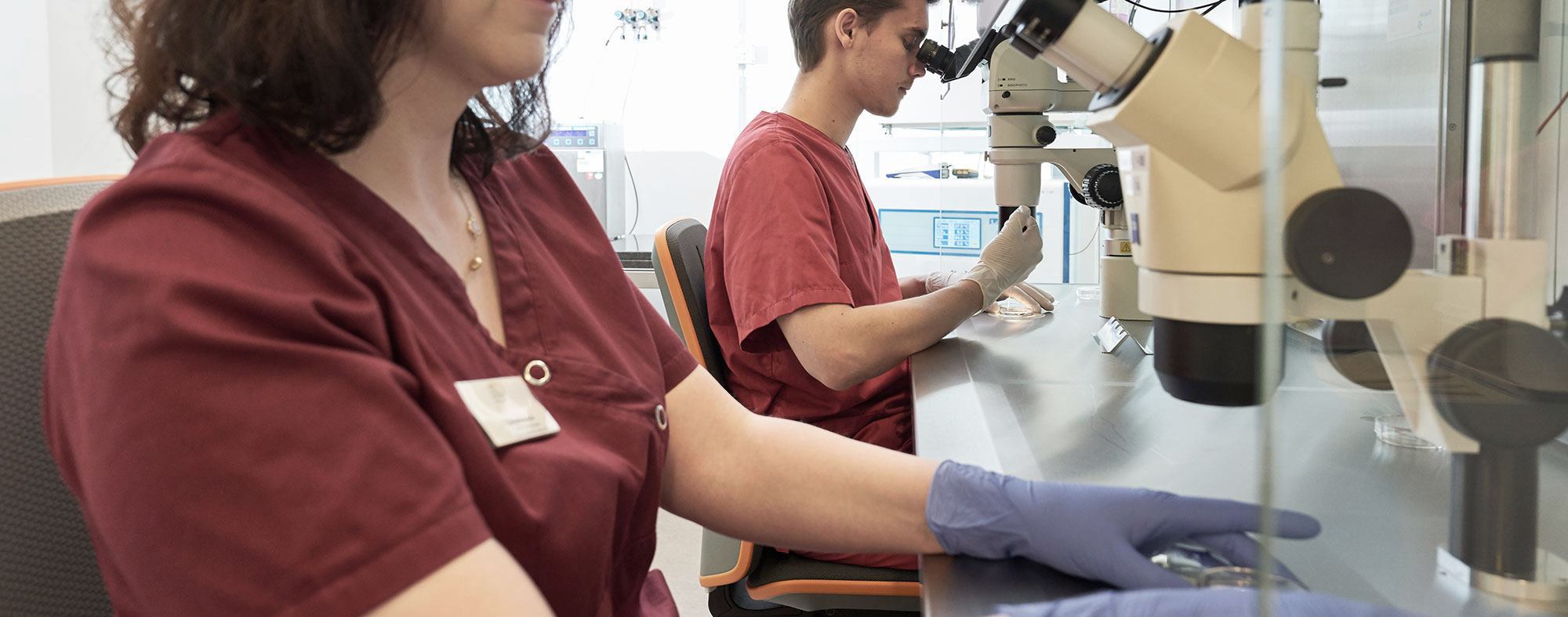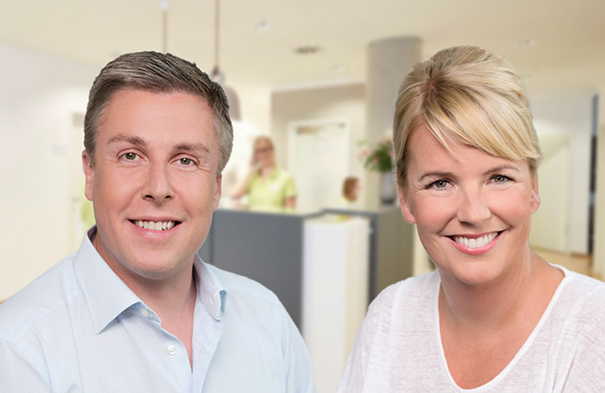On the way to the desired child – our diagnostic possibilities at a glance in the Assisted Fertility Centre "Assisted Fertility Doctors Berlin"
- Detailed couple consultation and counselling
- Hormonal tests in our own hormone laboratory
- Gynaecological investigation
- Ultrasound diagnostic tests
- Inspection of the Fallopian tubes by means of ultrasound or laparoscopy
- Investigation of repeated miscarriages
- Spermiogram in accordance with WHO guidelines (quality assurance by participation in inter-laboratory tests (QuaDeGa), we are a member of the German Society for Andrology)
- Diagnostic work-up of endometriosis (we are a Level 1 certified Endometriosis Centre)
- Diagnostic work-up of PCO (polycystic ovarian syndrome)
- Counselling and diagnostic testing of oncological patients who desire a family in close cooperation with the University Women’s Clinic of the Charité Campus Virchow
- Counselling on fertility protection measures
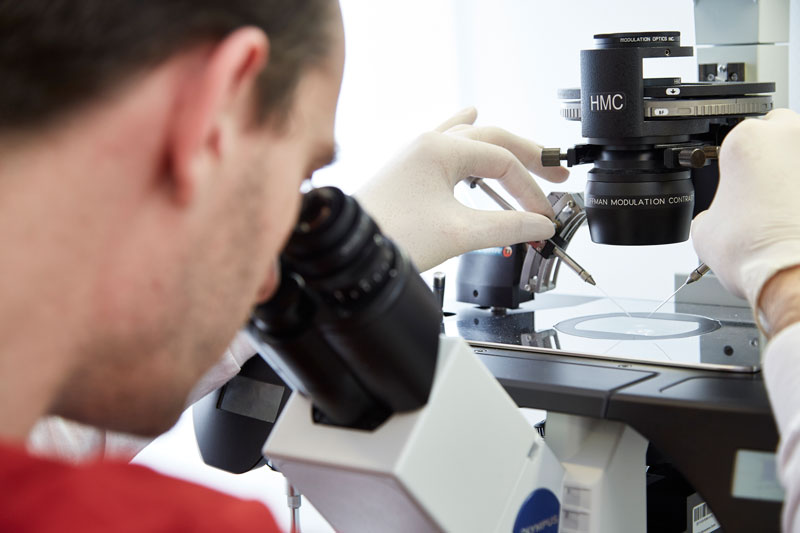
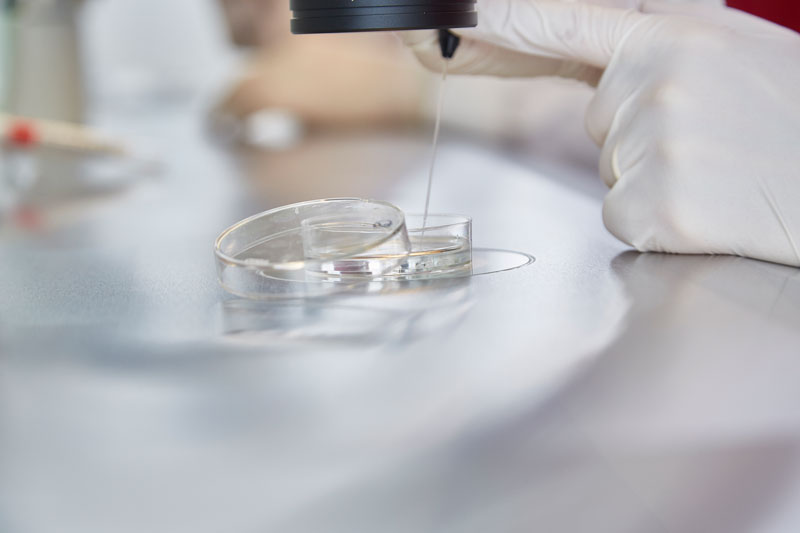
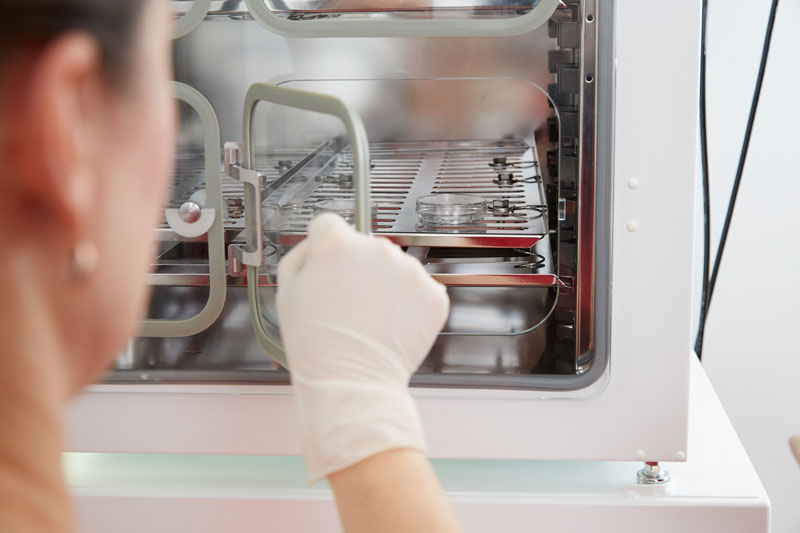
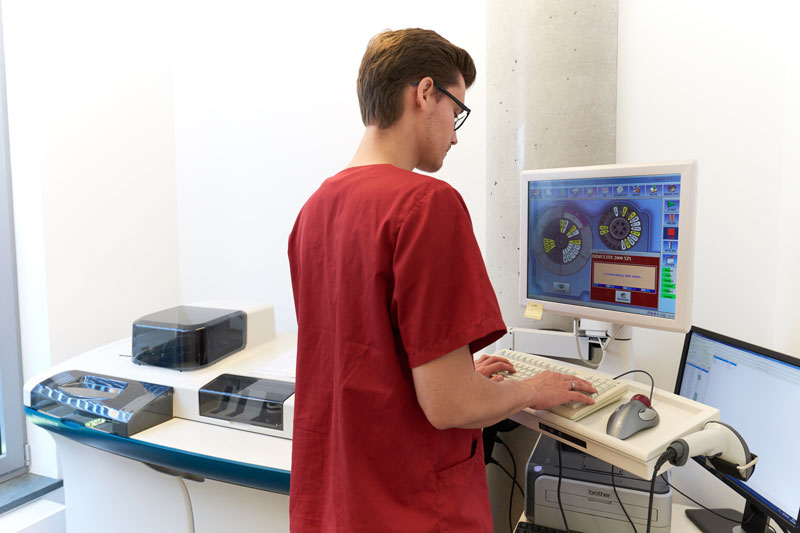
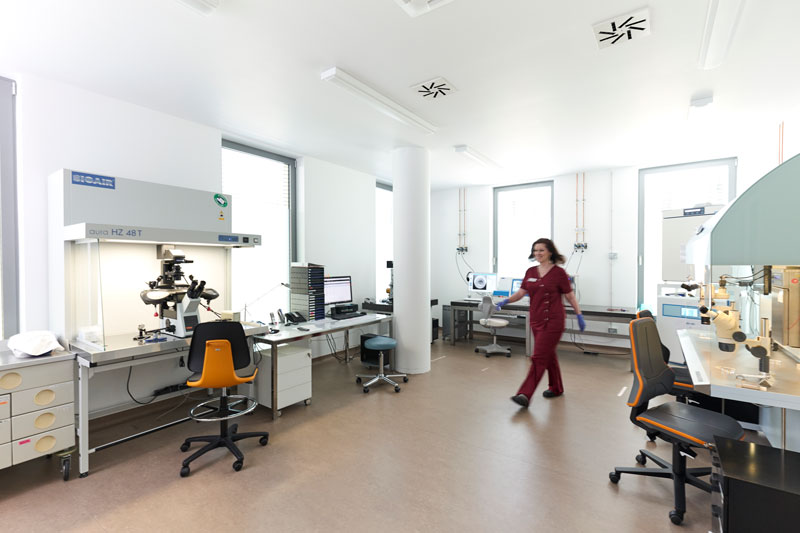
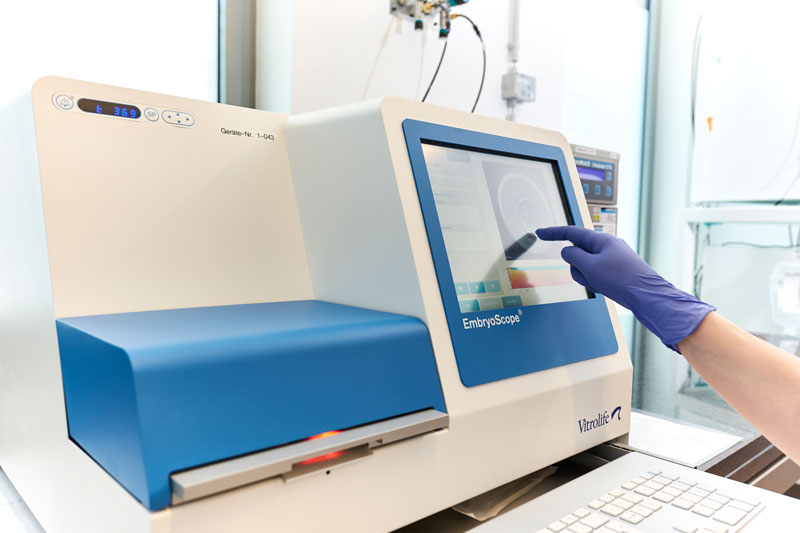
The most important investigations in disorders of fertility
more informationenAround half of unintentionally childless couples can be helped by targeted Reproductive Medicine treatments. This is with the proviso that the treating doctor is very familiar with this field. The experts at the „ASSISTED FERTILITY DOCTORS Centre“ are able to institute clear and rapid diagnostic tests in order to establish the causes of childlessness – the best foundation for targeted therapy. Three important pillars of diagnosis are:
- The investigation of the hormones in the man and the woman
- The investigation of the man‘s fertility by means of a spermiogram
- investigation of the functional capacity of the Fallopian tube in the woman
and additional important steps needed for a secure assisted fertility diagnosis:
Gynaecological investigation
This is a fundamental investigation, which can reveal organ malformations. These can influence the chances of falling pregnant. Ultrasound investigations allow us to assess the condition of the uterus, and the presence of myomas, polyps or endometriosis.
Hormone analysis in the woman
Infertility is not only caused by the female sex hormones: Many of our hormones have a major influence upon fertility, including for example thyroid hormones. As does a thrombotic tendency: Which can inhibit the implantation of the egg cells into the womb.
The hormone diagnostic tests are performed on a simple blood sample in our own hormone laboratory. The most modern analytic techniques lay the foundations for successful treatment.
Hormone diagnostic tests in the man
Using hormone analysis in the man, we can establish whether, for example, we can recognise poor sperm quality or symptoms such as reduced performance, loss of vitality, weight gain, fatigue and/or exhaustion Hormone analysis is also sensible in cases of loss of libido or impotence.
Spermiogram
The verdict of a sperm quality assessment (spermiogram) can determine that a man is infertile. It is performed by obtaining an ejaculate by masturbation following a period of abstinence of three days (period without intercourse or masturbation). The abstinence period is preserved on the one hand for reasons of standardisation (comparability of findings) and on the other hand, because too short a period between the last intercourse would negatively impact upon the total sperm count. Too long a waiting period also worsens the motility of the sperm. Usually two spermiograms are requested, since the values can vary appreciably.
The critical elements of a spermiogram are the sperm concentration per millilitre, the total sperm count, the proportion of live sperms in percent and the motility of the sperms. In addition, we can also assess the pH-value, the ejaculate volume and the shape (morphology) of the sperms.
Cycle monitoring
In cycle monitoring, two methods of investigation are combined: Ultrasound and measurement of the Oestradiol. This hormone is made exclusively by the growing follicle (developing egg) and thus allows a very precise assessment of its maturity.
Generally, the cycle monitoring starts on day 7 to 10 After menstruation. One to two ultrasound examinations are performed a few days apart. On these days, a blood sample is also taken in order to get information about the current hormone status. In the middle of the second half of the cycle, there is generally only one further blood sample in order to exclude deficiency of the corpus luteum.
Laparoscopy
In cases of infertility, this invasive procedure allows us to examine not only the Fallopian tubes but also the uterus, ovaries and the whole abdominal cavity, and malformations, myomas and endometriosis can be recognised. Laparoscopy is performed by us as an outpatient procedure under general anaesthesia.
Ultrasound contrast investigation
The Fallopian tubes can be also be assessed with two- or three-dimensional ultrasound examination (HyCoSy) instead of by laparoscopy. In this test, the Fallopian tubes are irrigated with a natural gel solution during a gynaecological ultrasound examination and thus rendered visible on the ultrasound image. This modern 3D-contrast sonography technique is a gentle, non-operative method, which is performed by us as an outpatient procedure without anaesthesia.
This process can also wash out and free small deposits and adhesions within the Fallopian tubes. This makes them easier for the sperm to pass through.
Uteroscopy
In this investigation, a small camera passed into the cavity of the uterus can recognise changes, which may be the cause of bleeding disorders or which might impair implantation of an embryo. We are looking for myomas in the mucosa, polyps, malformations of the uterus and adhesions. This procedure is often performed together with laparoscopy.
Our optimised assisted fertility therapy follows on from the completed diagnostic tests. The treatment of pre-existing conditions is important here, alcohol and nicotine should be avoided and on occasion weight optimisation may need to be considered.

